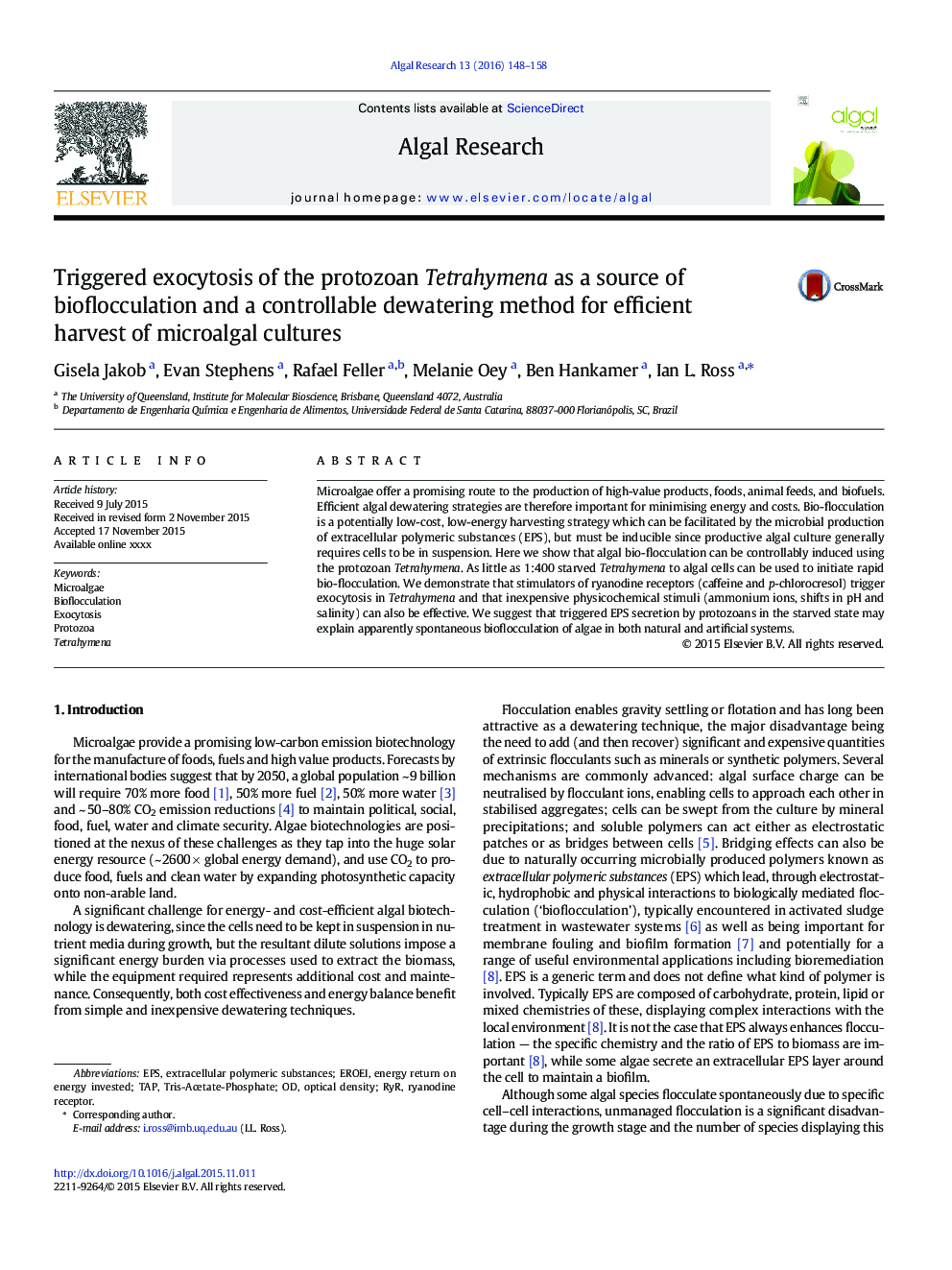| Article ID | Journal | Published Year | Pages | File Type |
|---|---|---|---|---|
| 8087489 | Algal Research | 2016 | 11 Pages |
Abstract
Microalgae offer a promising route to the production of high-value products, foods, animal feeds, and biofuels. Efficient algal dewatering strategies are therefore important for minimising energy and costs. Bio-flocculation is a potentially low-cost, low-energy harvesting strategy which can be facilitated by the microbial production of extracellular polymeric substances (EPS), but must be inducible since productive algal culture generally requires cells to be in suspension. Here we show that algal bio-flocculation can be controllably induced using the protozoan Tetrahymena. As little as 1:400 starved Tetrahymena to algal cells can be used to initiate rapid bio-flocculation. We demonstrate that stimulators of ryanodine receptors (caffeine and p-chlorocresol) trigger exocytosis in Tetrahymena and that inexpensive physicochemical stimuli (ammonium ions, shifts in pH and salinity) can also be effective. We suggest that triggered EPS secretion by protozoans in the starved state may explain apparently spontaneous bioflocculation of algae in both natural and artificial systems.
Keywords
Related Topics
Physical Sciences and Engineering
Energy
Renewable Energy, Sustainability and the Environment
Authors
Gisela Jakob, Evan Stephens, Rafael Feller, Melanie Oey, Ben Hankamer, Ian L. Ross,
